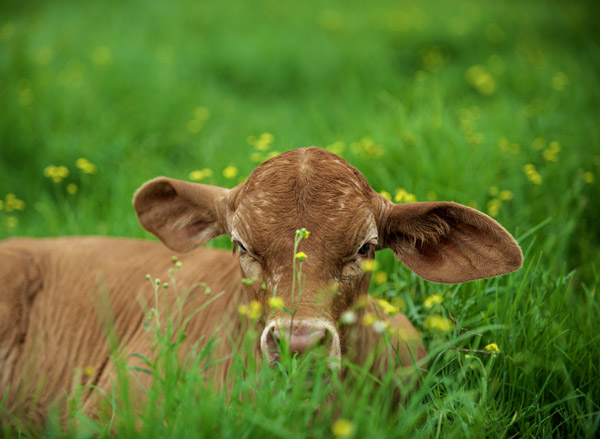Feeding livestock with red algae reduces methane emissions
Asparagopsis taxiformis is a popular Pacific red algae that can save the world from greenhouse gases.
Studies in Australia and Canada have shown that a small amount of red algae added to livestock feed significantly reduces the amount of methane that livestock produces. Cow burps alone account for 26 percent of the country's total methane emissions, and the US alone is the fourth largest cattle producer in the world after China, Brazil and India, according to the EPA.

Now, researchers at the University of California at Davis have shown that seaweed inhibits belching, and adding it to the diet of cattle does not harm animal growth or change the taste of beef.
Cattle that ate just three ounces of seaweed a day for five months gained the same weight as their herd mates, while emitting 82% less methane into the atmosphere.
The University of California-Davis followed earlier studies of dairy cows in which methane emissions were reduced by 50%. Their daily dosage of seaweed has been used from the time the cows were young and until they became adults. The researchers found that longer consumption of the seaweed in animals did not change the taste of the milk.
One problem: all researchers used a red algae called Asparagopsis toxiformis. It is one of the most popular seaweed ingredients in Hawaiian cuisine and is traditionally used in poker. But stocks of wild crops are not enough, and startups are already being created to produce them.
SeafoodSource reports that the Royal Institute of Technology of Sweden has partnered with Yale University to grow red algae in land-based reservoirs with the intention of supplying them to livestock breeders around the world.
An Australian project called Greener Grazing is the first to develop methods for producing and seeding asparagose spores for ocean cultivation. And last year, a dried product called FutureFeed, created at James Cook University in partnership with Meat and Livestock Australia, won the $ 1 million Food Planet Prize. Doses of one to two percent of dried algae reduce methane emissions from ruminants by 99%.
Producers say that if just 10% of the world's livestock producers added 1% seaweed meal to their daily livestock feed, it would be like taking 100 million cars off the road.
Source: Meatinfo